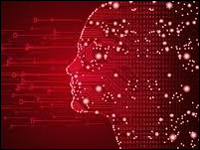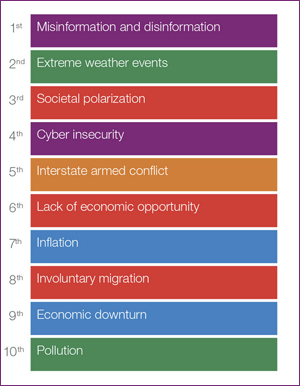 In the book of Revelation, the last book of the Bible, there is a vivid description of The New Jerusalem – The Holy City – referred to in John Bunyan’s Pilgrim’s Progress as ‘The Celestial City’, the ultimate heavenly home of believers.
In the book of Revelation, the last book of the Bible, there is a vivid description of The New Jerusalem – The Holy City – referred to in John Bunyan’s Pilgrim’s Progress as ‘The Celestial City’, the ultimate heavenly home of believers.
The walls of this heavenly city are made of glass and precious stones. The streets, the Bible says, are paved with gold.
Glass, precious stones, gold.
The entrance to the city, however – the gates – are made of pearls, hence the well-known phrase ‘The Pearly Gates’.
This is significant, as pearls are the only substance on the list which are made from a living thing.
As we know, a pearl is made when an irritant invades and wounds an oyster.
In Matthew’s gospel, in the parable of ‘the pearl of great price’, a merchant sells all he has to possess this pearl, and once he has found it, he stops looking.
The Bible teaches that this pearl – entry into the kingdom of heaven – is through Jesus Christ who paid for our redemption with his blood and is ‘of inestimable value’.
“He was wounded for our transgressions, he was bruised for our iniquities, the chastisement of our peace was upon him, and with his stripes we are healed,” says the prophet, Isaiah.
That is some irritant, some wound.
Artificial Intelligence (AI) – the science of making machines that can think, speak and act like humans – is being trumpeted as the new Celestial City on earth.
‘We are on the cusp of an extraordinary renaissance of human possibility and abundance,’ says Transformative Technology Lab’s Nichol Bradford.
‘Young people today will inherit and build their own technologies that could eliminate poverty, inequality, hunger, illness, and even death.’
Researchers at the University of Cambridge have identified four key potential features of AI: immortality, ease, gratification and dominance.
Immortality in the form of indefinite lifespans; ease in the form of freedom from the need to work; gratification in the form of pleasure and entertainment provided by machines; and dominance, the power to protect oneself or rule over others.
In this utopian future, AI would be harnessed for the benefit of humanity to ‘seamlessly integrate into various aspects of human life, significantly boosting productivity, innovation, economic growth, overall well-being, human flourishing and to accelerate medical and scientific advancements.’
‘AI has the potential to transform every aspect of human society,’ the researchers say.
AI technology would also be used to solve complex problems such as climate change, disease, poverty, and would elevate humanity to new heights.
Oh, and the streets will be paved with gold …
The Spectator records an insightful anecdote featuring Neil D. Lawrence, author of The Atomic Human: Understanding Ourselves in the Age of AI.
It recounts how Lawrence was describing his work in AI to a receptionist at London’s Natural History Museum.
‘So, it’s like fire, then,’ the receptionist responded.
Yes it is, and like fire, people get burned.
As French philosopher Paul Virilio once put it: ‘The invention of the ship was also the invention of the shipwreck.’
To further complicate things, an added dimension will be the inhabiting of this new world by millions of robots shaped like humans.
Since time immemorial, humans have been projecting human-like characteristics on to non-human objects – think Pinocchio, Thomas the Tank Engine, the clock and the teapot in Beauty and the Beast, The Lion King and Beatrix Potter’s Peter Rabbit.
Numerous experiments have been undertaken with children interacting with human-like robots; and while some might question the wisdom and ethics of leaving a child alone with a robot companion, they argue that the behaviour of parents who are emotionally immature or obsessively distracted by their own wireless devices, can also contribute to a child’s feelings of isolation or insecurity.
‘The presence of a robot, especially one that appears to give the child its undivided attention, could mitigate negative effects of problematic adult behaviour on children’s emotional well-being.’
‘Are emotional attachments to robots more detrimental to children than some attachments to people?’ the researchers ask.
Our own 3-part series A Digital Dark Age warns of the dangers of government control over information and communication.
The new Celestial City will, in essence, be a machine, inhabited by machines.
Built by tech designers and software engineers guided by social media behemoths, these new masters of the digital universe are not driven by moral codes.
The brave new world of technology and science that lies ahead of us may be built with server racks and circuit boards as big as the Bible’s Celestial City, but to ensure this Utopia does not become Dystopia, the entrance, the gates to this new celestial city, need to be made of pearls.
Thank you for your support.
 So said former New Zealand Prime Minister, Jacinda Ardern.
So said former New Zealand Prime Minister, Jacinda Ardern. Internationally, ‘misinformation and disinformation’ have risen to number one on the list of top 10 risks cited by the World Economic Forum’s (WEF) Global Risks Report 2024.
Internationally, ‘misinformation and disinformation’ have risen to number one on the list of top 10 risks cited by the World Economic Forum’s (WEF) Global Risks Report 2024.